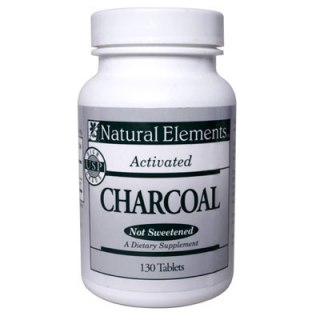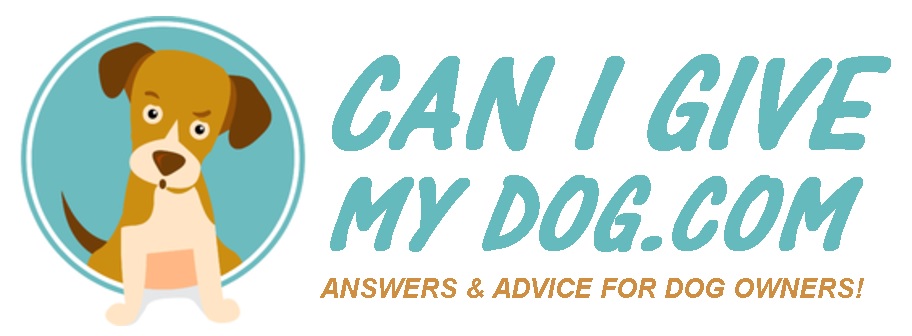Activated charcoal can be an extremely useful tool for when your dog becomes poisoned.
But can this potentially life-saving treatment be administered at home, or should it be left to the professionals?
Here’s the deal:
 When time is critical, activated charcoal could prevent a beloved dog from dying.
When time is critical, activated charcoal could prevent a beloved dog from dying.
So owners must learn to be proactive. After all, harmful absorption of toxic substances is all too common when it comes to canines.
Giving your dog activated charcoal does not have to be intimidating.
Keep reading to learn more…
Dogs’ Lives Have Been Saved Thanks to Activated Charcoal
It is smart to keep a quality supply on hand (just in case).
You can give activated charcoal to your dog when necessary.
But of course your vet should also be involved. This is true whenever your pet’s life is on the line.
FYI: The FDA has approved activated charcoal (AKA activated carbon) for veterinary medicine.
While human use has declined, this treatment remains popular with vets and particularly for dogs.
Before we continue: Does your canine have a medical emergency at this very moment?
If so, stop reading and get professional help immediately!
Detoxification Agent 101
Activated charcoal is a detoxification adsorbent that comes in powder form or tablets.
There are many brands including Toxiban, CharcoAid and Liqui-Charcoal-Vet Aqueous Suspension.
We recommend a 100% natural USA-sourced activated charcoal.
Treatment is administered by mouth with water via the use of a syringe. Sometimes it requires a stomach tube.
Once introduced, activated charcoal will pass through your dog’s body and begin absorbing toxins.
Watch this informative video:
How It Actually Works
Substances in your dog’s intestines and stomach, including vitamins and minerals, will attach to activated charcoal’s fine-sized particles.
The process works due to the vast surface area of this type of charcoal.
For example:
A 25-gram dose can cover a surface area of approximately 5 football fields!
It’s amazing!
You can’t see it with the naked eye, but trust that activated charcoal can save your dog’s life in certain scenarios.
Activated Charcoal Dosing
Each dose may be slightly different. It depends on the product.
A general rule of thumb:
5 grams of activated charcoal for each 10 pounds of your dog’ body weight.
Talk with your vet to ensure a correct amount is provided. Do this before an accident ever occurs.
It Is Sometimes Ineffective
Activated charcoal reduces toxicity, but there are situations where it may not work.
Examples include ethanol, lithium, cyanide, methanol, arsenic or alcohol. Different treatment is needed if a dog consumes those poisons.
Even when used properly, activated charcoal greatly depends on timing.
The quicker you employ it, the more likely it’ll successfully reduce deadly absorption. Sometimes an emergency vet visit is too late.
What cannot be stressed enough is that activated charcoal has to be given soon after exposure.
Emergencies Require Help
Again…
Have an urgent situation on your hands?
Stop what you’re doing. Now is not the time to be researching activated charcoal. Focus on getting your dog the assistance they need.
The following are reliable contacts:
- Expert advice and staffed 24-hours, Poison Pet Hotline: 1-800-213-6680
- The ASPCA’s National Animal Poison Control Center: 1-888-426-4435
The Bottom Line
With sufficient knowledge, you can give a poisoned pet dog activated charcoal.
It reduces toxic effects through absorption (especially when time is a critical factor).
But administering activated charcoal does not eliminate a need for professional help. Involve a vet for your dog’s sake.

How much water do I use for 15 grams of activated charcoal?
If my dog got into something toxic, that could be treated with activated carbon, could I break open my water filter to give them activated carbon? And then of course rush to the vet.
If a dog ate toad poison do I give it activated charcoal?
Thank you for the detailed information on using activated charcoal. The name brands helped so much. My dog had gotten a hold of 2 green grapes and I wanted to make sure that I had the charcoal on hand (if I mess up again).
Hi Linda. My dog just ate one green grape. How was your dog with eating 2 of them? I don’t know what to do!
I have a 15 pound Dachshund who has had a problem with Giardia for the past 2 years. The vet said he can do no more for him. In fact, the last two prescriptions did not work.
So, I tried 3 months of natural remedies which consisted of black walnut liquid, echinacea, intestinal soothe, liver cleanse, NutriBiome Bacillus Coagulans Probiotics and Silver Shield.
This helped him a lot. However, I think he still has some intestinal disorder judging from his movements and swelling of the stomach.
A friend suggested activated charcoal. She gave me one gel cap. Is it safe to try this on him? I thought maybe a half of the cap.
Would activated charcoal help with recovery from Lungworm? My dog has been treated and is recovering. I was just wondering if this would help with her getting rid of the dead worms. Can it clean out her system?
Why can’t you get Ipecac anymore? Charcoal doesn’t seem to do the same thing. It absorbs poison, which is important, but what if you need to induce vomiting?
What takes the place of Ipecac for vomiting? The pharmacy doesn’t carry it anymore. Should I keep a replacement in my home? Thank you!
Ipecac is harmful to dogs. Once they start vomiting, they may not stop. Use a syringe of hydrogen peroxide.
If the dog won’t take the syringe, put some in a bowl with a spoonful of vanilla ice cream. In 10-30 minutes, depending on how much they get (rule of thumb is 1 teaspoon to every 10 pounds of body weight), they will puke up whatever they ate – along with the white foam from the hydrogen peroxide.
It’s not dangerous to absorb, and it could save your dog’s life if done quickly after they eat something they shouldn’t.
Do not use hydrogen peroxide if your dog ate something jagged or sharp. It could damage their stomach and esophagus. Best to leave that one to the vets!
Great info but what size syringe do you recommend?
I had to use this on a Great Dane. She ate her bed. I gave her 5cc orally and she throw up so hard, but it worked.
We are giving our dog this treatment. We talked to a vet after he ate a huge amount of Bromethalin (rat poison). It’s been 12 hours after ingestion. We’ll see what happens.
I also heard the vet will prescribe vitamin K for rat poisoning.
Did your doggy make it? Rat poison is pretty nasty. I truly hope so.